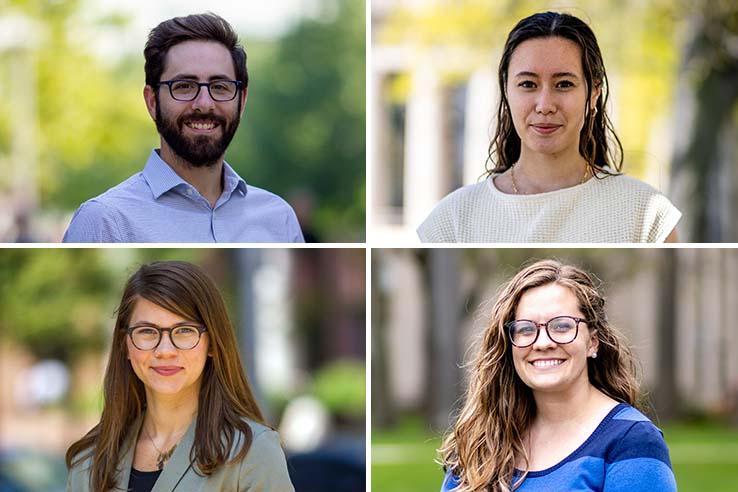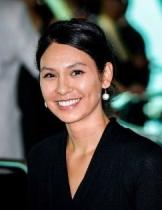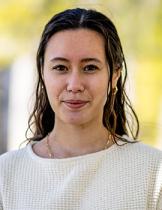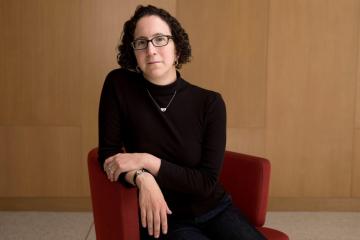
J-PAL North America Staff Spotlight: Health Team

Row 2: Hannah Reuter, Lisa Turley Smith
In the first post of an ongoing Staff Spotlight series, we highlight four J-PAL North America team members who support Co-Scientific Director Amy Finkelstein and staff the Health Care Delivery Initiative to evaluate promising programs aimed at making health care in the United States more efficient, effective, and equitable. These staff share about their paths to J-PAL, give insight into their roles, and speak about valuable lessons learned.
Jesse Gubb
Jesse Gubb is a research manager at J-PAL North America, where he supports Co-Scientific Director Amy Finkelstein’s randomized evaluations and develops resources to improve research quality. Learn more about how his academic background led him to J-PAL.
What is your educational background, and how did you come to J-PAL North America?
I have an academic research background, which reflects my interest in research and belief in evidence-based decisions. I focused on political science in undergrad and in my PhD. One thing grad school taught me was I didn’t want to be an independent researcher working in isolation. I wanted to do something on the ground, with a team, and have direct policy relevance. J-PAL was a place where I could do that.
What has been your favorite project at J-PAL North America?
The healthcare hotspotting project, which I worked on when I first arrived, remains my favorite. I showed up when the actual research was complete, so I was able to quarterback the last part—managing the publication and dissemination process. It was challenging because we found a null result for a popular program. That meant considering the interests of our implementing partner while trying to share the results of the study and make a point about the value of randomized evaluations, all while dealing with the unfamiliar world of medical journal publishing and media embargoes. Ultimately, we were able to make a big impact while maintaining nuance. Two years later, people continue to reach out about the study, often with an interest in evaluating their own similar interventions.
What is unique about your role?
I feel like both people within and outside academic research don’t often think that research needs management. It’s not a role I was aware of before coming here. But it’s super important to keep a project moving forward. I coordinate with researchers to make sure everyone is on the same page, and I work with partners to make academic analysis plans feasible on the ground. I even play “pretend lawyer” in trying to get institutions to sign data use agreements or secure IRB approval. There’s a lot of negotiating to make sure a project gets completed. I’m often putting out fires that no one knows about and solving problems before they arise, and that’s very satisfying to me.
If you could witness any historical event, what would you want to see?
We don’t pay enough attention to the 1800s in the US, especially Reconstruction. We miss that era in history class; it’s not part of our American mythology. It was an era where we attempted to construct a pluralistic society and multiracial democracy, which saw a lot of progress but ultimately led to failure. It would be interesting to see that period and understand how it’s instructive to the current time and place. It’s important in this role too, as someone trying to understand policy and poverty alleviation in the US, to consider similar efforts in other periods and learn from them.
Cordelia Kwon
Cordelia Kwon is a policy associate at J-PAL North America, where she supports the Health Care Delivery Initiative, writes and disseminates key policy messages, and encourages the development of randomized evaluations. Learn how her background in global health and qualitative research informs her work.
What is your favorite part about working at J-PAL North America?
I have two favorite things. The first is the people and community. I have some of the most intelligent and supportive coworkers I could hope for. There is great mentorship in the office but also an amazing support system outside of work, which has been so helpful because I moved to a new city for this position.
The second is the mission of reducing poverty by ensuring that policy is informed by scientific evidence. Academic research can be hard to digest, so I love working on the communications team to reach people across platforms and share research results in an accessible way—whether through a tweet, a blog, or an op-ed.
What is your educational background, and how does it relate to your current role?
In undergrad, I studied anthropology and public health, with a minor in Middle Eastern studies. I always knew that I wanted to work in public health but was still figuring out how I wanted to do that. Initially, I was interested in humanitarian work and health systems for migrants and refugees. I learned a lot about global health systems while studying abroad in Abu Dhabi, Australia, Ghana, and Europe, and thought I would go into global health work.
But when Covid-19 happened, there was increased visibility of the Black Lives Matter movement as well as a rise in hate crimes against Asian Americans—which is very relevant to my own community. Those events made me want to focus on domestic issues, which led me to J-PAL North America.
Even though I studied global health, my previous experience still applies because we can learn from other countries about what works. My background in qualitative research also comes up a lot in staff conversation, as some other members of our policy team don’t have a background in economics. We can have open conversations to constructively critique the work we do and look at our studies from different perspectives.
What valuable career lessons have you learned so far?
If you care about a job, you can do the job. It’s important to be passionate and eager to learn—I come from a qualitative background and had to study randomized evaluations before my interview, but I learned!
I wasn’t fully confident during the application and interview process because I kept thinking: “I’m not an economist; I don’t have my master’s; I don’t have the same experience as the other staff.” Now I know there are so many staff members here to support me as I learn new things.
Instead of feeling uncomfortable because you don’t know something, be open to exploring a new field. It’s easy to want to be the smartest person in the room, but if you’re willing to learn, you have more opportunities for growth and change.
Hannah Reuter
Hannah Reuter is a policy manager at J-PAL North America, where she oversees the Health Care Delivery Initiative. Discover how she came to work in evidence-based policy and her favorite parts about working at J-PAL.
What is your professional and educational background?
I graduated from University of Massachusetts, Amherst where I studied political science. I served as an AmeriCorps member as my first job out of undergrad. A large part of my service was focused on food security for the local community. While I really loved working in direct service, I was frustrated because there always seemed to be systemic issues that I couldn’t fix at the direct service level.
So I decided to go back to graduate school at NYU Wagner for my Master’s in Public Administration. I was then introduced to the world of evidence-based policy through my first job post-grad school, where I worked to connect individual researchers and with state, local, and federal policymakers. Then three years ago I came to J-PAL, where I now lead our Health Care Delivery Initiative.
How does your role at J-PAL North America relate to your background?
I don’t think I’d be here if I hadn’t gone to the particular grad program I attended. For one, it was there that I was exposed to Poor Economics and the work of J-PAL. My graduate work also opened my eyes to a different way to think about policymaking, beyond the party politics that we see on the news or that I was exposed to as an undergrad. Policymaking is about building consensus, and while evidence isn’t the only tool to build consensus, it can be a really compelling one.
What aspects of your role do you enjoy the most?
I’ve really enjoyed working with policymakers on custom trainings. Policymakers will come to us and express interest in evidence but don’t know where to start. Those trainings open an opportunity to problem-solve collaboratively with a non-research audience. While we can’t solve every barrier to evaluation in a short session, I’m proud of the work we do to explain why evaluation is important, how it can be used in their work, what the limitations are, and the viable ways to work around those limitations.
More generally, I love that J-PAL convenes a group of researchers who are trying to make their work useful and relevant to a community beyond other researchers. Research for research’s sake is great, but I think it’s important that it gets used and doesn’t remain behind a paywall.
If you could live in one other era of history, when would it be?
I would love to go back to France in the 1400s and follow Joan of Arc around. There is such a mythology around her and it’s hard to disentangle her Saint story from her story as a real, living woman. She convinced really powerful men to do things that didn’t make any sense, and I’m fascinated by that.
Lisa Turley Smith
Lisa Turley Smith is a research associate at J-PAL North America, where she supports Amy Finkelstein’s research portfolio. A certified “J-PAL Groupie,” find out how Lisa found J-PAL and her favorite parts of her role.
How did you first learn about J-PAL North America?
I first learned about J-PAL during my sophomore year of undergrad from one of my economics professors. I was interested in more practical applications of economics, and she recommended I look at J-PAL. After looking at the website, J-PAL just seemed right in line with my thinking about how we should use evidence and quantitative research to tackle development and poverty alleviation. The next semester, I read Poor Economics by Abhijit Banerjee and Esther Duflo. It was my favorite book—I’ve probably read it three times since. So I had heard about J-PAL very early on and it became one of my goals to work at J-PAL one day. I was very excited when I got this position at the North America office. At orientation, I became known as the “J-PAL Groupie” among the staff.
What aspect of your role do you enjoy the most?
I knew that in my career I wanted to make an impact somehow. Prior to coming here, I worked in direct service. I’ve worked at an immigration firm and I also tutored at a high school with a high immigrant population. That work was really gratifying, but it was also really exhausting. At the end of the day, I knew I couldn’t change the systemic issues they were facing. I realized I wasn’t personally suited for direct service.
In this role, I love working with data, no matter the topic. But being able to tell a story with the data and answer big questions makes me feel that I can still make an impact without burning myself out.
What valuable career lessons have you learned so far?
One thing that I’ve really taken in is that it’s really important to get perspectives from people who have very different life experiences at each step of the research process. People will interpret results so differently depending on their life experience, and that’s really important to acknowledge.
The other lesson I find important is that you can rely on the people you work with. If there’s a coding problem or if there’s something that isn’t coming out right, it’s always better to get input from someone else. The expertise of your co-workers is one of your greatest resources, especially here at J-PAL North America.
What does your work-from-home set-up look like?
It changes all the time. I usually work in our spare room, and that works pretty well, but it’s also where my partner works. If we ever have meetings, I move downstairs to the living room and work at the folding table there. And if we don’t have childcare on a given day and my toddler is napping, I need to work on the other side of the apartment. I’ve really just had to make any space work!
This post is the first in a series highlighting staff at J-PAL North America. Other installments feature our communications and fundraising team and state and local team. To learn more about our staff and their accomplishments, follow J-PAL North America on LinkedIn.


